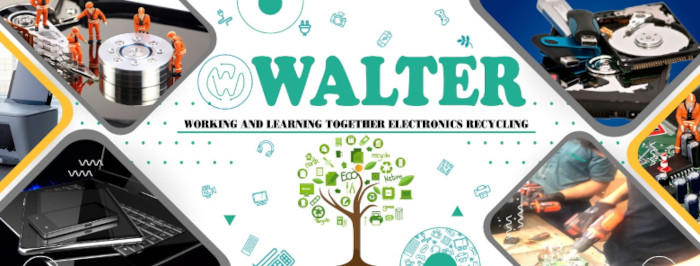Dignified Work in the Green Economy

Following in the spirit of this year’s October 17 theme, which highlights the importance of decent work for all, Aye Aye Win, president of the International Committee for Oct 17, sits down with Guillaume Charvon in another episode of Dignity Voices. In this episode, Charvon discusses how shaping a new green economy can also create spaces of dignified work for people who otherwise struggle to find it.
Nurturing the Young in a Green Economy

As the National Director of ATD Fourth World – USA, Charvon has spent a lot of time working with the children of New York’s underprivileged neighbourhoods, particularly with the ATD Story Garden initiative in Brownsville. It was here that he saw how many of these children would reach young adulthood with no real tools to build a life for themselves.
At the same time, he also noticed a natural entrepreneurial spirit in many of them that just needed a little nurturing.
It was this, along with a keen interest in restructuring the economy to a greener and more sustainable framework, that led to the creation of Working and Learning Together, Electronics Recycling, otherwise known as WALTER. Charvon and Jonathan Torn founded WALTER with a dual mission: to responsibly recycle electronics and provide stable employment opportunities for young adults in Brownsville. So far, WALTER employs 12 workers, 7 of whom come from underprivileged backgrounds. They have also recycled more than 300,00 pounds of electronic waste. It is this dedication to their dual mission statements that led to them winning the third-place prize of the French-American Entrepreneurship Award this year.
Trust and Support go Hand in Hand
In the podcast, Charvon discusses some of the lessons he has taken away since embarking on this endeavour, starting first and foremost with the importance of trust. Trust comes in extending opportunities to those who are otherwise struggling to find employment, trusting in their ability to take on the responsibilities given to them. This idea of trusting also goes hand in hand with a low turnover employment rate at WALTER. The company acknowledges that time is needed to fully grow and develop the skills required for the job, so WALTER provides its employees the space and support to achieve this.
The importance of support is another key learning point that Charvon touches on. This support considers the many other complications that come with living through poverty and provides the employees with some flexibility in that regard. As Charvon explains, life is unpredictable and those working for WALTER sometimes need the time to focus on the other complications that may arise outside of work. Ultimately, WALTER is driven to helping these young adults take control over every part of their lives.
Overcoming the Barrier of Location
With WALTER, some of the barriers to decent work that Maryann Broxton discusses in the previous episode of Dignity Voices are overcome, particularly with the barriers related to location. As Charvon explains, developing the company in the heart of Brownsville was crucial. With their targeted hiring system, which looks specifically for individuals who would otherwise struggle to find employment due to homelessness or experience with the criminal justice system, it was important that the business was located within walking distance of where most of its employees live. At the same time, it also allows economic opportunities to be reinvested back into the neighbourhood. Charvon points out how a circular green economy thrives from an increase in local job opportunities as there is less reliance on the global supply chain.
From Decent Work to Dignified Work
In Charvon’s final points, he explains how WALTER goes beyond providing decent work to focusing on providing dignified work. According to the concept note for October 17, 2023 dignified work goes beyond simply providing employment but also providing non-judgemental and supportive environments necessary to overcome obstacles associated with poverty. Charvon explains that there are four main components to dignified work. Firstly, dignified work provides you with a purpose. There is the obvious financial purpose to obtain a both stable and growing income. But it is also important to feel you connect with the purpose of the company you are working for, that you are working for a good cause and that your work has a positive impact (which is no doubt the case with WALTER).
Secondly, dignified work should provide a sense of belonging, a community, which is crucial to growth and development support structures. This then also extend to feeling you have a place in society, particularly important for many living through poverty who often find themselves turned to the side-lines of society.
Thirdly, the work should have a positive impact on the employee’s identity. Like with providing a purpose, the employee should feel good about themselves, and that they are doing good, for the company, their loved ones, and the community. Lastly, the job should open doors for the future. Many of the jobs available to people living in poverty offer little to no upward mobility opportunities and many often find themselves stuck in the same position with no way of developing skills for other roles. With WALTER there is an active effort to offer a wider range of positions, from warehouse work to testing and refurbishing, in order to provide its employees with new skill sets and learning opportunities that they could then take on to other jobs.
Since its launch in 2022, WALTER has become a beacon of hope in the burgeoning green economy and for all those looking for dignified work.
With its dual mission statement, WALTER has brought the marginalised into the heart of sustainable social change. Their young employees have finally been given a space to be driven and hopeful about their lives and their future, becoming inspired about the real and lasting impact they can have in the community. A quick look at the videos on WALTER shows the enthusiasm and spirit of the workers who have found hope with WALTER. As one of the floor associates, Rahnell Texsera, explains, “I want to be someone who can give other people opportunities just like [WALTER] gave me”.

